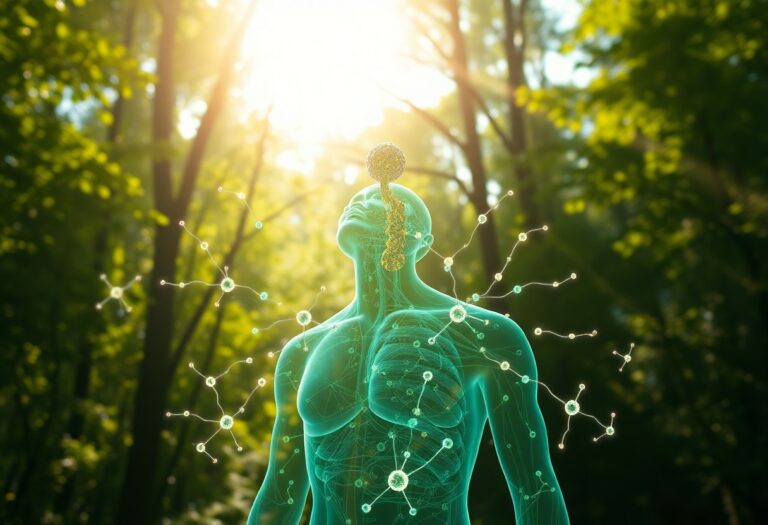Functional medicine is a comprehensive treatment approach that works with your body to address the underlying cause of your symptoms, not just their symptoms themselves.
Discover how personalized nutrition and natural therapies can aid your healing, feeling better, and achieving remission after cancer treatment. Discover more about getting the most out of functional medicine.
Nutrition
Nutrition is the practice of eating and drinking the correct types of food to give your body essential nutrients, such as protein, fat, carbohydrates, vitamins, and minerals.
Eating well can help you stay strong and maintain a healthy weight, reduce the risk of certain diseases, and boost energy levels. It may even assist in managing cancer symptoms like nausea or vomiting.
Nutrient absorption in the human body occurs in three steps: we consume food or drink, it breaks down into nutrients and then those nutrients travel through our bloodstream to different parts of our bodies where they are utilized as “fuel.”
Certain foods possess special properties that may help fight or slow cancer cell growth. Dark green leafy vegetables, yellow and orange fruits and beans all contain anti-inflammatory compounds which may prevent or delay cancer cell division.
Additionally, certain phytochemicals found in tomatoes, watermelon, guava and apricots contain antioxidants which may protect against cancer. Furthermore, these substances promote immunity development while decreasing inflammation.
There is growing evidence that oxidative stress, inflammation and other metabolic processes contribute to the development of various types of cancer. While these are normal bodily processes, they are activated by external influences like lifestyle choices, diet choices or exposure to toxicants.
Functional medicine approaches to cancer care address imbalances and how they affect the body’s core physiological processes. Improving these processes is the first step toward restoring health to each individual.
By taking into account each patient’s individual diet, lifestyle and other factors, we can tailor treatments to target specific areas of the body.
Patients receiving cancer treatment or palliative care can be screened for nutritional needs using a validated tool such as the Patient-Generated Subjective Global Assessment (PG-SGA). Early identification of nutrition-related issues is key to effective nutrition management.
Prior to surgery to remove tumours, it is critical that patients receive adequate nutrition. Malnutrition can have detrimental effects on surgical outcomes and lead to longer hospital stays and slower recovery periods. For this reason, cancer care providers may recommend dietary supplementation before surgery and enteral or parenteral feeding afterward.
Hormones
Hormones are chemical messengers that communicate with the body to control various functions, such as growth and development; metabolism (how your body uses energy from foods); sexual function and reproduction; and mood. They’re produced in endocrine glands like pituitary, thyroid and adrenal glands before traveling through the bloodstream to different organs where they interact with cells and tissues making up those organs.
Hormones come in a variety of forms. Chemically speaking, they can be divided into three classes: steroid hormones (such as oestrogen and progesterone), amino acid derivatives, and peptide hormones.
The endocrine system consists of multiple glands that produce hormones, which are then secreted into the bloodstream by transport proteins. These messages travel throughout the body to regulate essential bodily processes like growth, immunity and stress response.
In some instances, the body may release the wrong hormones, leading to health complications. If this occurs, your healthcare provider can assist in managing the issue by testing for accurate levels of hormones.
For example, breast cancer may be caused by an excess of oestrogen. The best treatment for this condition is hormone therapy which can be administered by your naturopathic oncologist.
There are various methods to address hormonal imbalances, including diet, lifestyle modifications, supplements and pharmaceutical and natural therapies. These treatments can reduce side effects, enhance quality of life and support the body’s capacity for cell destruction.
Hormones play an important role in the body, controlling growth and development; metabolism; fluid electrolyte composition; and reproduction. Together with other substances, hormones create homeostasis – an equilibrium within the body.
Your endocrine system uses two forms of communication to regulate your metabolism: one type between glands and another gland; and, conversely, between an endocrine gland and its target organ. For instance, when your pituitary releases TSH (Thyroid stimulating hormone), it stimulates your thyroid gland to release its own thyroid-stimulating hormone and then produces various thyroid hormones that have an impact on metabolism.
Stress
Stress is a natural reaction to life’s demands and stresses, part of your body’s “fight-or-flight” response designed to protect you from danger. It causes an immediate surge of hormones that alert you, elevate your heart rate and breathing rate, as well as cause muscles to tense up.
But, too much stress can have serious health repercussions. It can negatively affect your mood and outlook, disrupt sleep patterns, cause anxiety or depression; additionally, it has been known to contribute to chronic illnesses like cardiovascular disease and diabetes.
Everyone responds differently to stress, but in general it can cause symptoms like headaches, muscle tension and irritability. It’s essential that you recognize your triggers and realize there are treatments available that can help you reduce stress levels.
Stress management can have positive effects on mental and physical health, as well as reduce the likelihood of cancer development. Through lifestyle adjustments, mindfulness exercises, and counselling you may learn effective methods for managing stress better.
Research has demonstrated that people with chronic stress who receive psychological support tend to enjoy better quality of life and fewer cancer-related side effects than those without such support. Furthermore, those who have a strong social support system are less likely to have an unpleasant experience during cancer treatment and tend to respond better to chemotherapy or radiation treatments.
There is some evidence that emotional and social support can reduce stress-related hormones and promote the development of a healthy immune system in breast cancer survivors. Furthermore, social support may decrease the risk of post-treatment tumour growth among ovarian cancer survivors.
A review of the relationship between stress and cancer found that chronic stress activates the hypothalamic-pituitary-adrenal (HPA) axis, releasing hormones and neurotransmitters. These hormones increase production of inflammatory mediators while suppressing cellular immunity – potentially leading to tumour growth or metastasis.
Though the exact cause of stress in cancer development remains uncertain, there are ways to reduce it. Seeking support from family, friends or a professional therapist can be especially beneficial; other approaches include dieting, exercising and meditation for relaxation.
Environment
The environment is everything around us – the air we breathe, water we drink, sunlight we receive, plants and animals around us and minerals in the soil. We rely on this environment for survival; to provide food and shelter while keeping our bodies healthy.
The human body is an integral component of the environment, providing energy, nutrients and oxygen. Unfortunately, it also has a detrimental effect on the environment that could result in disease or even death.
We can protect the environment by conserving its resources, using renewable sources of energy and making sure our use of raw materials and land is sustainable. Doing this will reduce pollution and the climate change caused by our activities.
Environments have many facets and it can be daunting to comprehend them all. The most widely accepted definition of an environment refers to the natural world that surrounds us; this includes both biotic (living) elements like water, air, minerals, vegetation, and wildlife – both abiotic (non-living) and biotic (living).
Ecosystems are composed of living organisms and non-living parts that interact with one another and the environment. Ecosystems provide essential services to sustain life, such as purifying water (wetlands and marshes), air (forests), pollinating crops and other plants, and absorbing pollutants.
Ecosystems can be divided into aquatic (marine), freshwater environments (lakes, rivers and ponds), terrestrial environments (land) and atmospheric ones (air). Ultimately, the size of an ecosystem determines its significance to human life.
Environment is an integral component of functional medicine for cancer support, as it helps reduce the effects of stress and other lifestyle factors on cancer cells. It may also boost immune system performance and facilitate patient recovery from treatment.
Additionally, it can improve patient satisfaction and cut healthcare costs. Thus, patients are more likely to stick with treatment programs, leading to better cancer patient outcomes.
In addition to environmental aspects of treatment environments, it is essential that patients receive sufficient social support during and after their treatments. Studies have linked a lack of social support with higher rates of cancer-related mortality – an issue particularly acute for patients in low and middle income countries as well as older individuals or those living alone.
For more information or if you would like to discuss treatment and management with Dr Stavy then please contact us via email:info@drstavy.com



